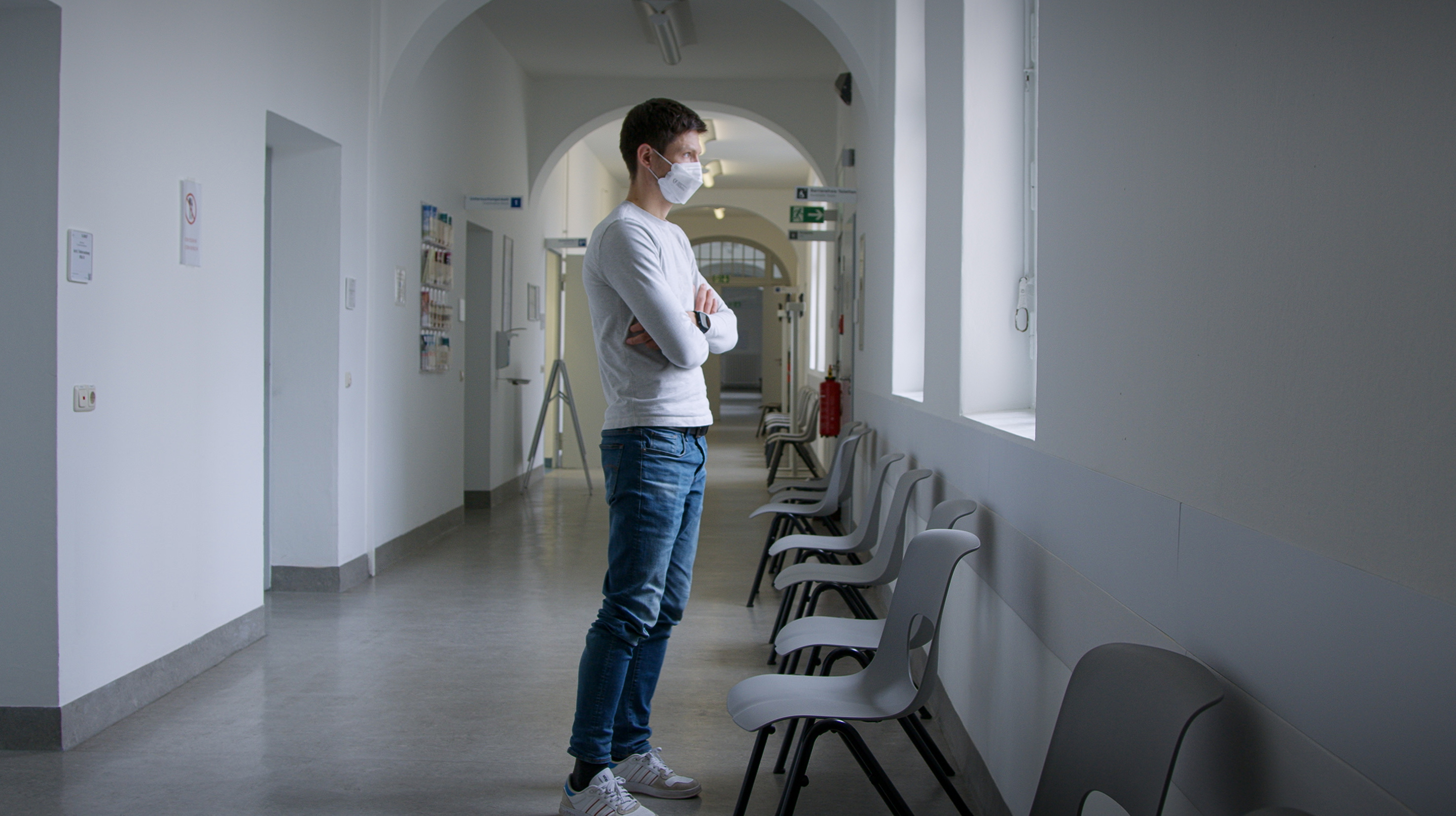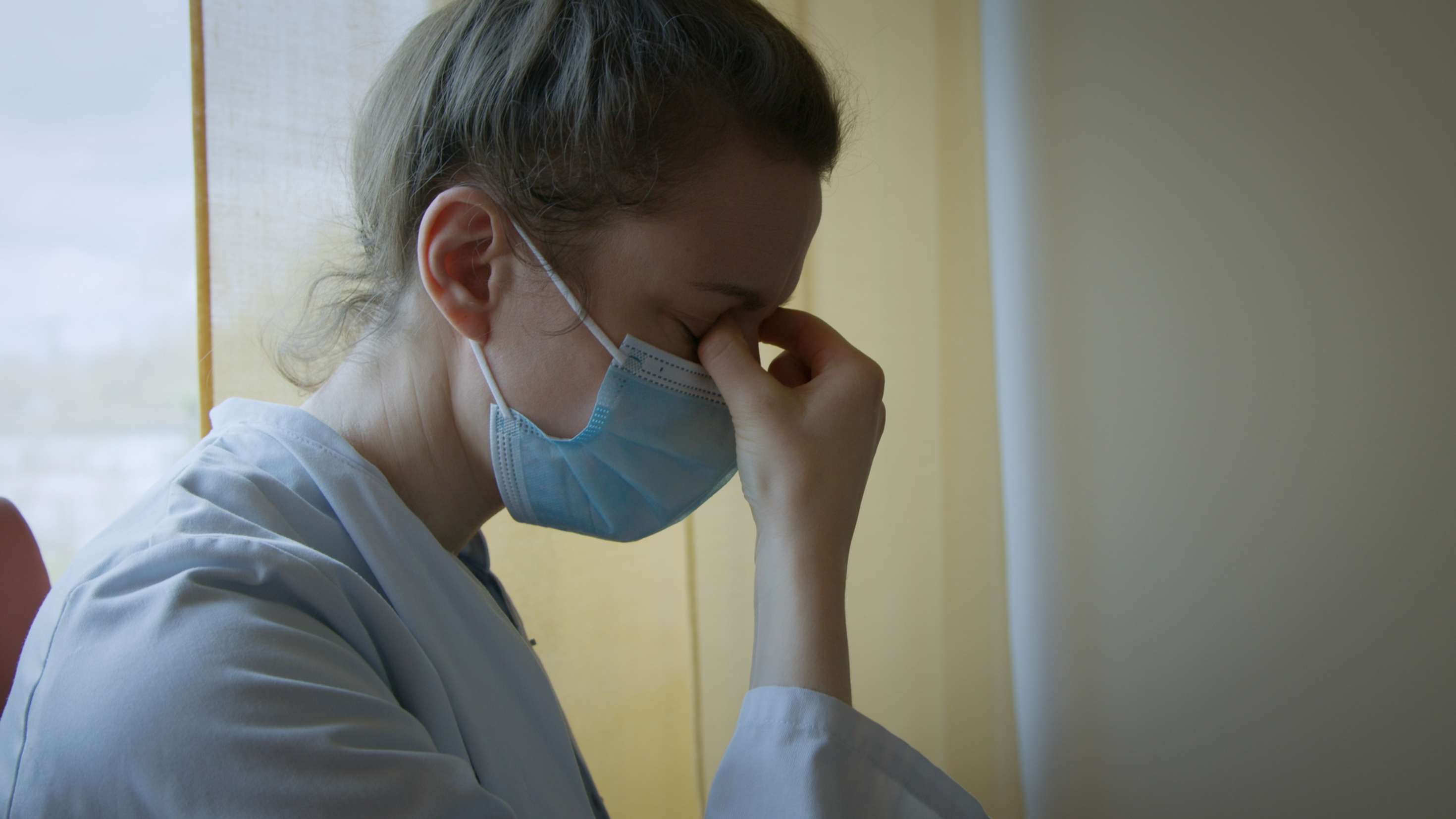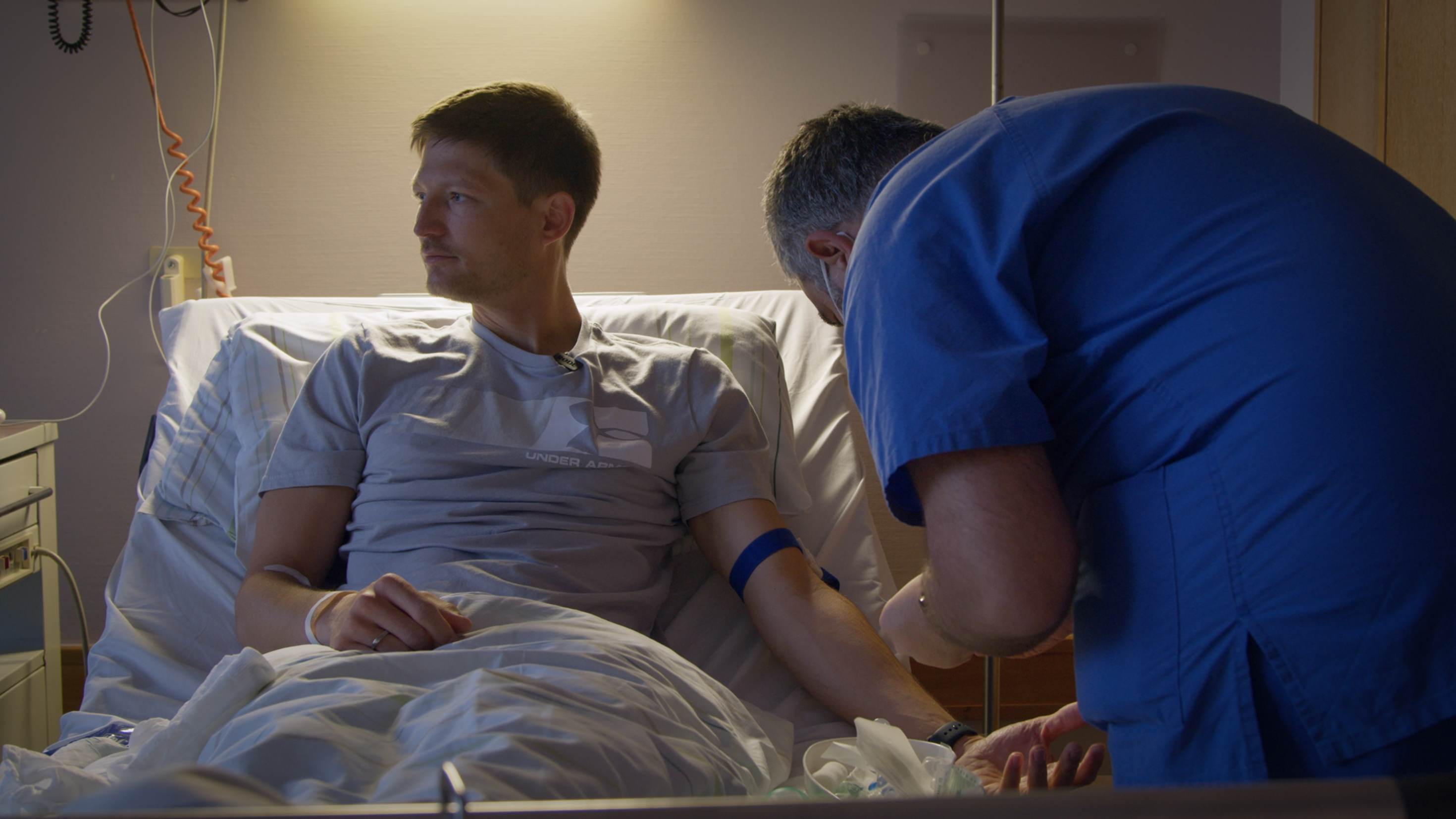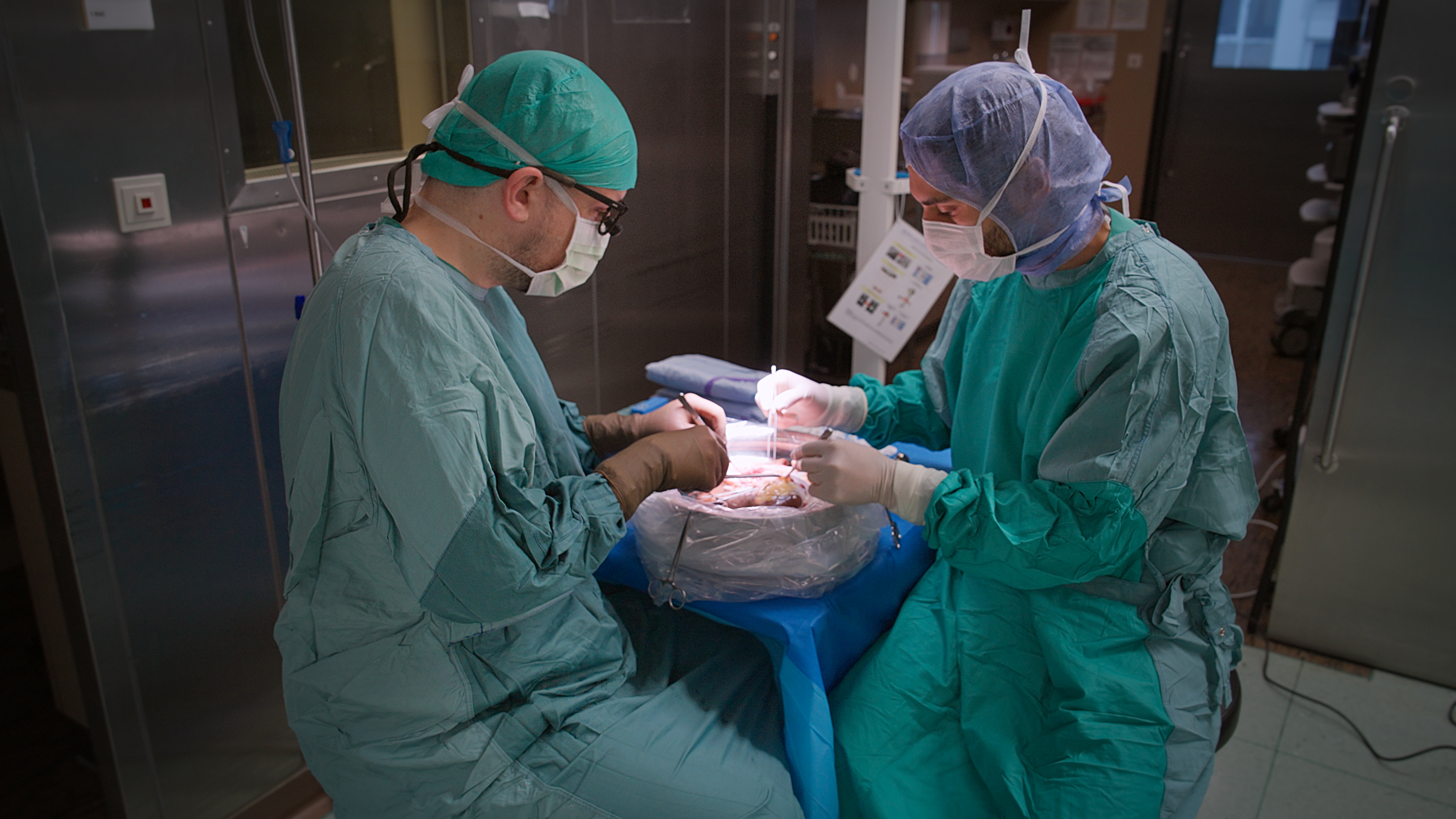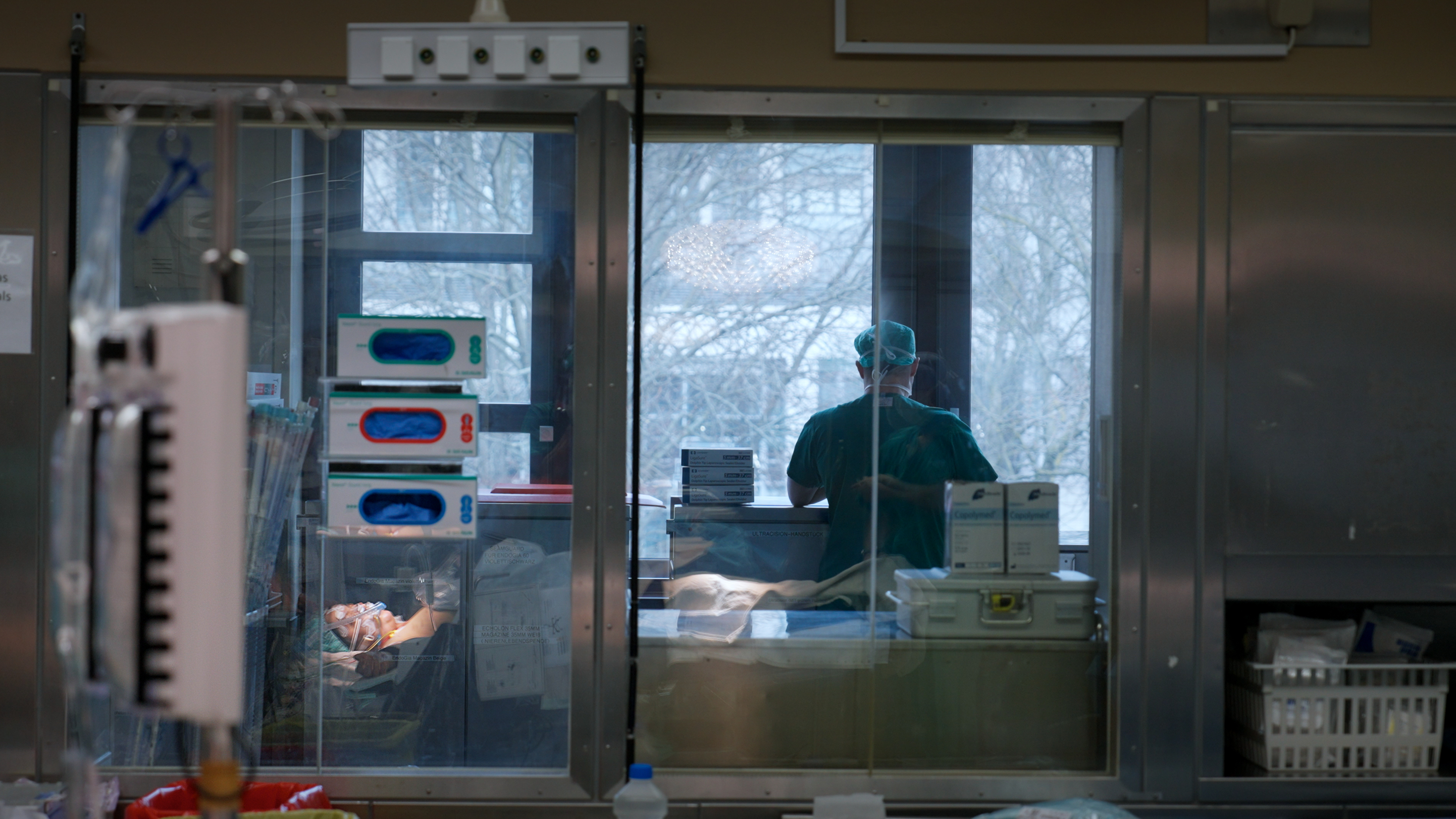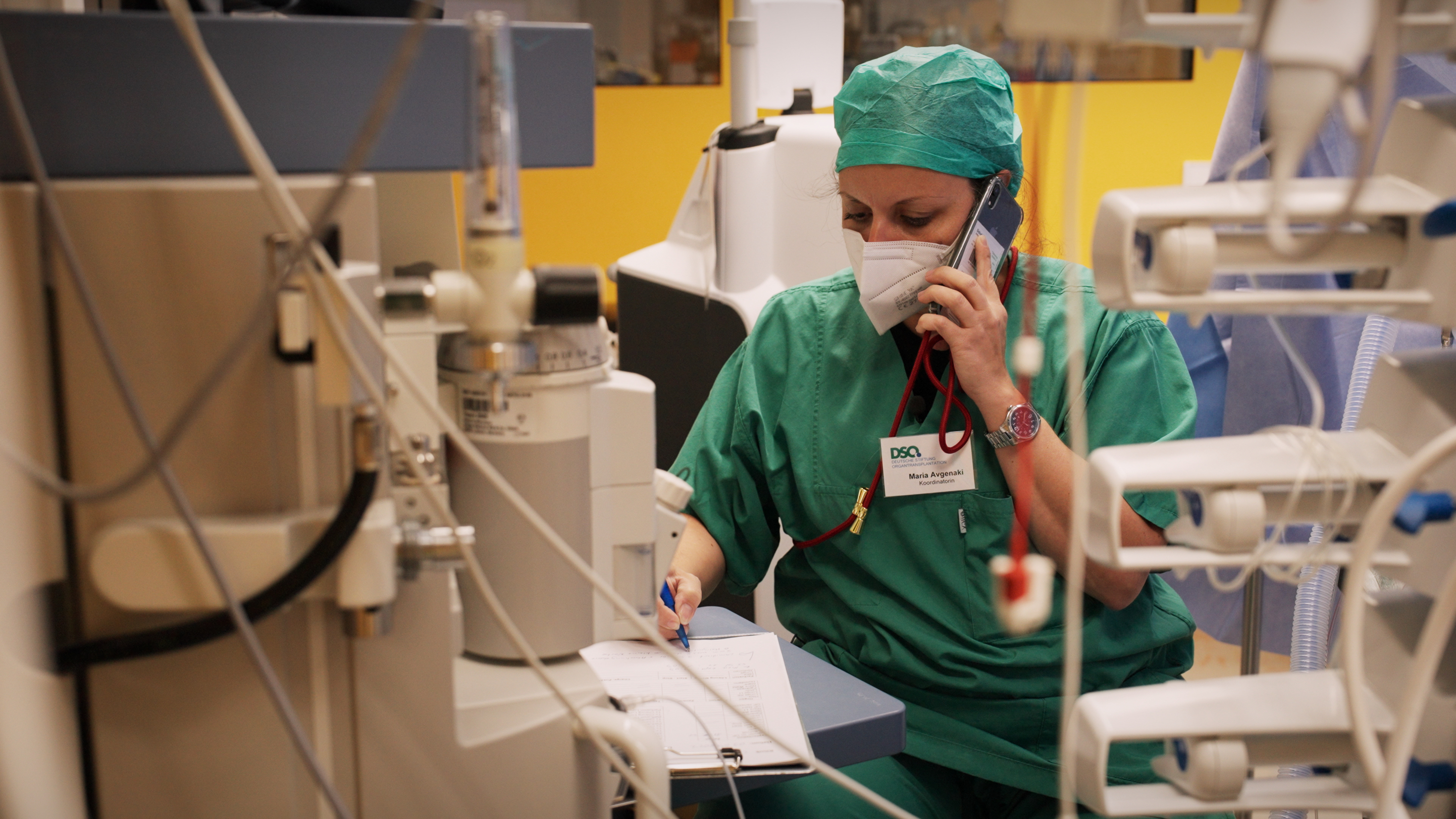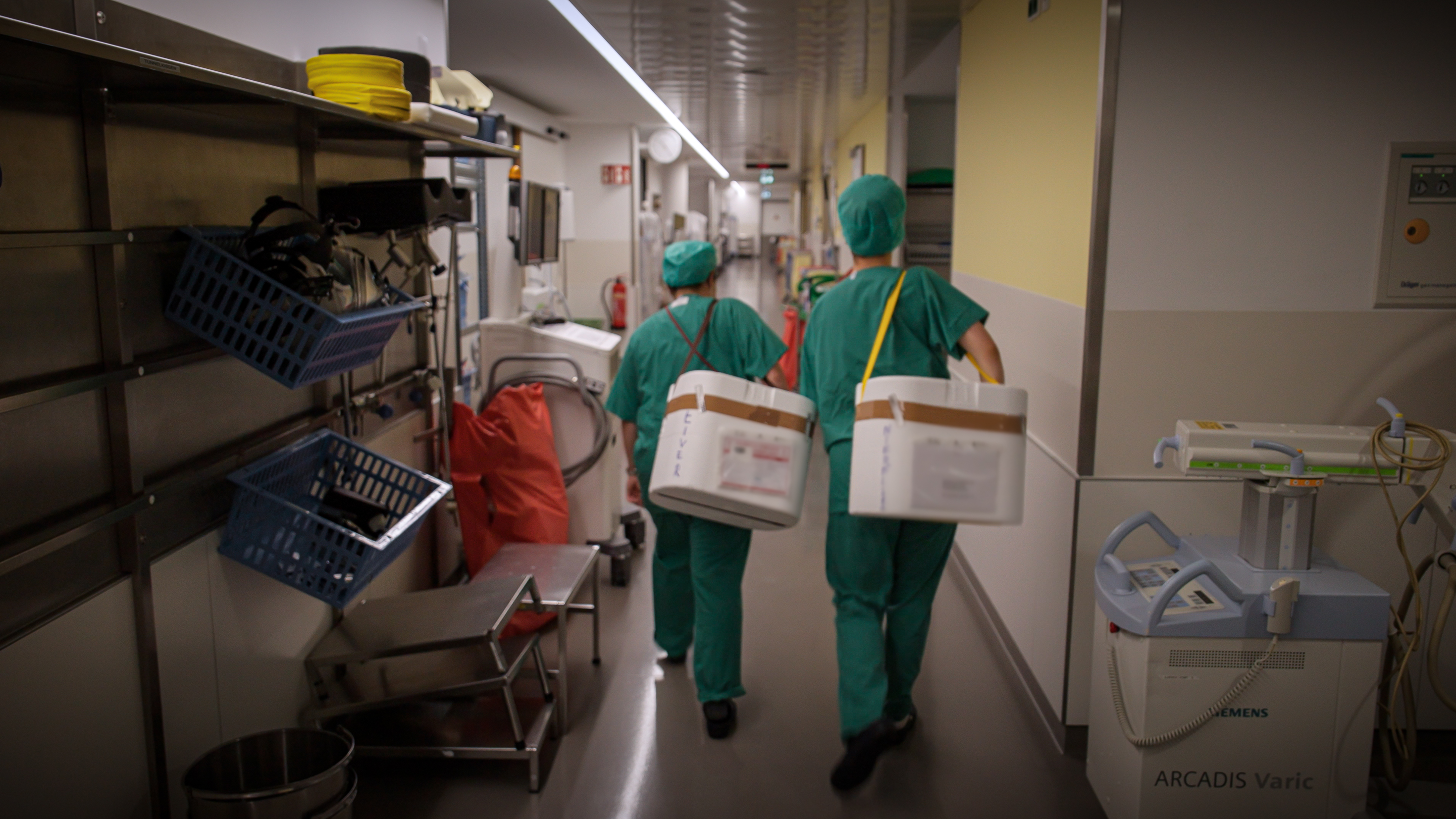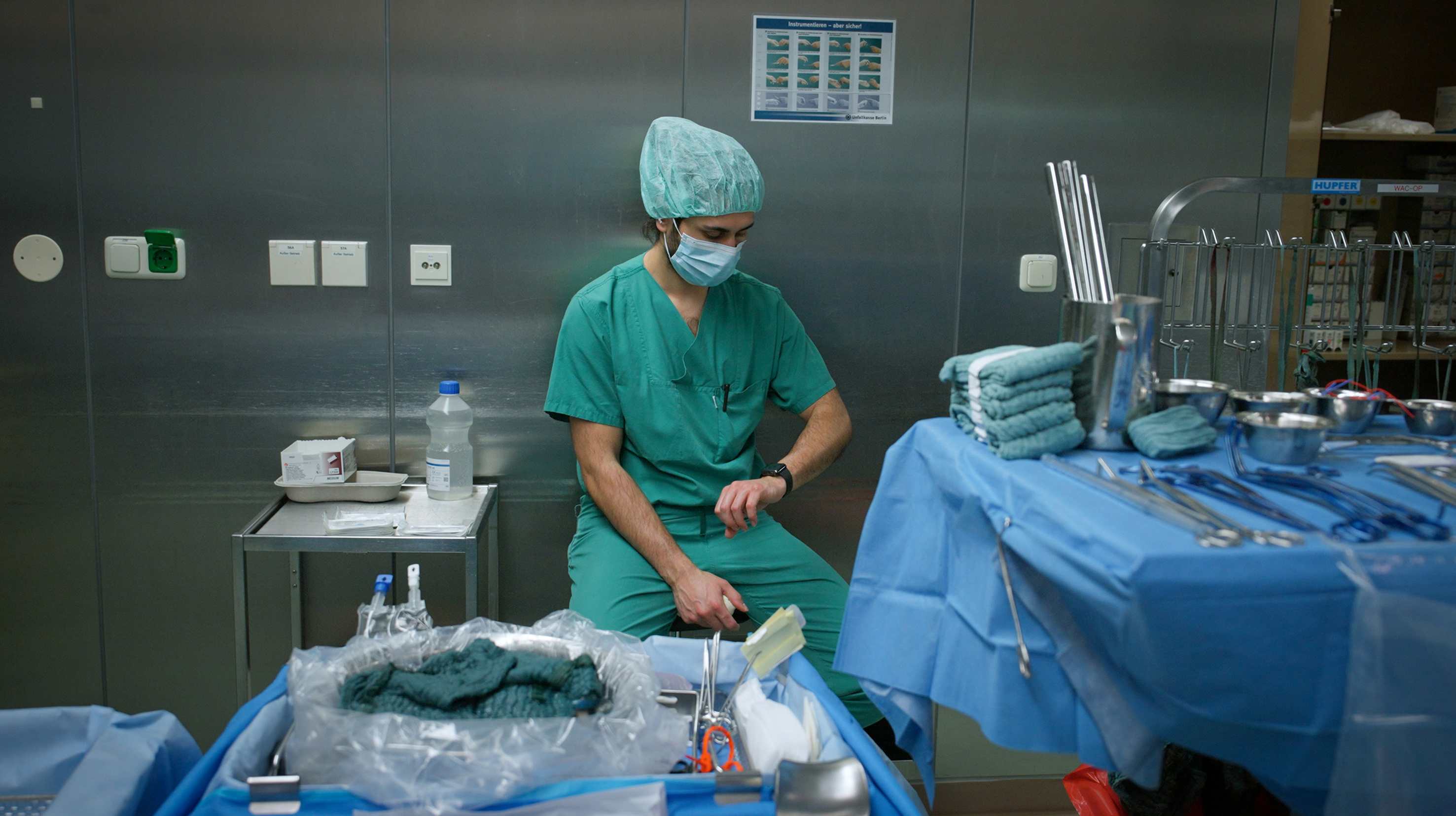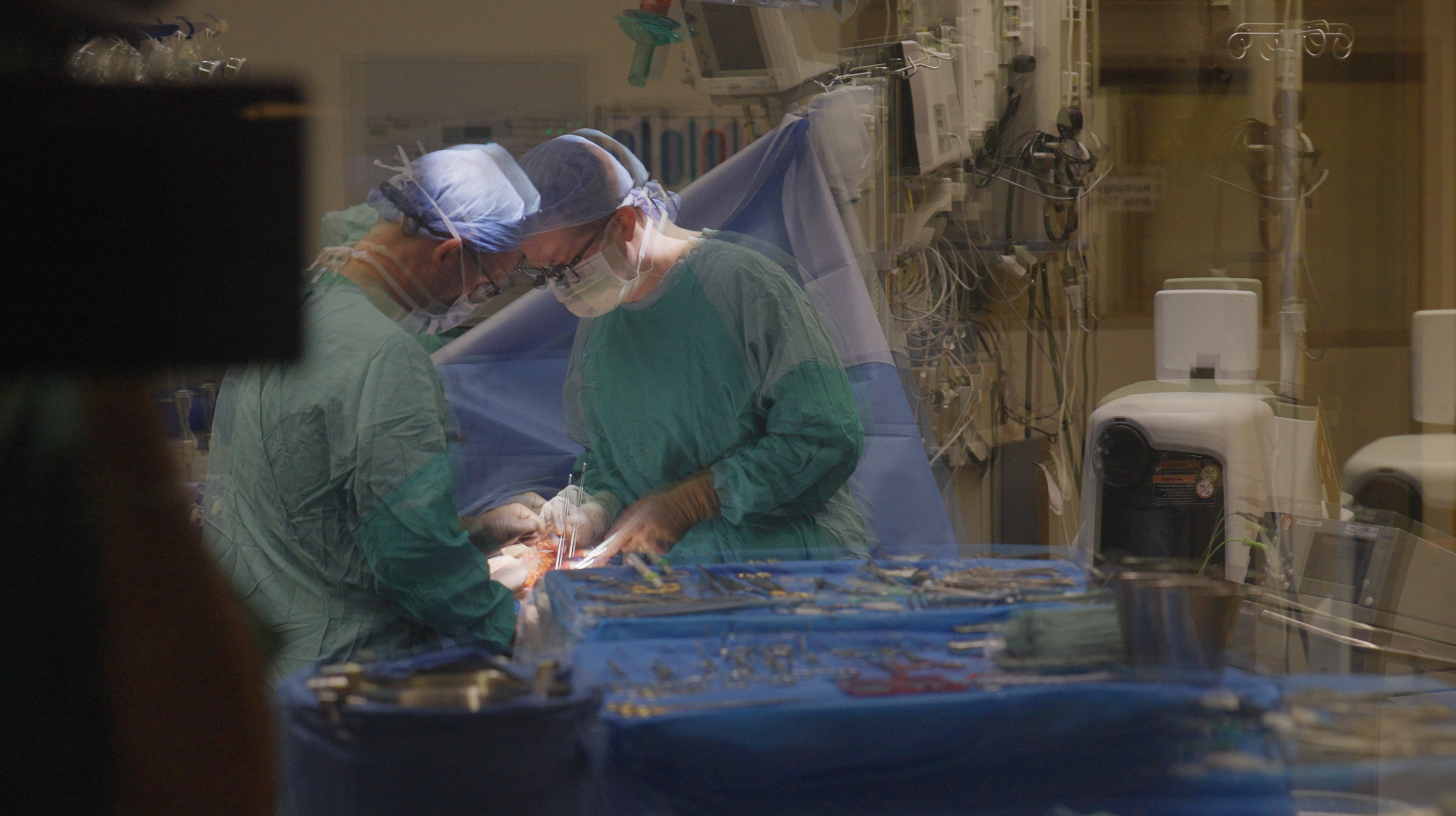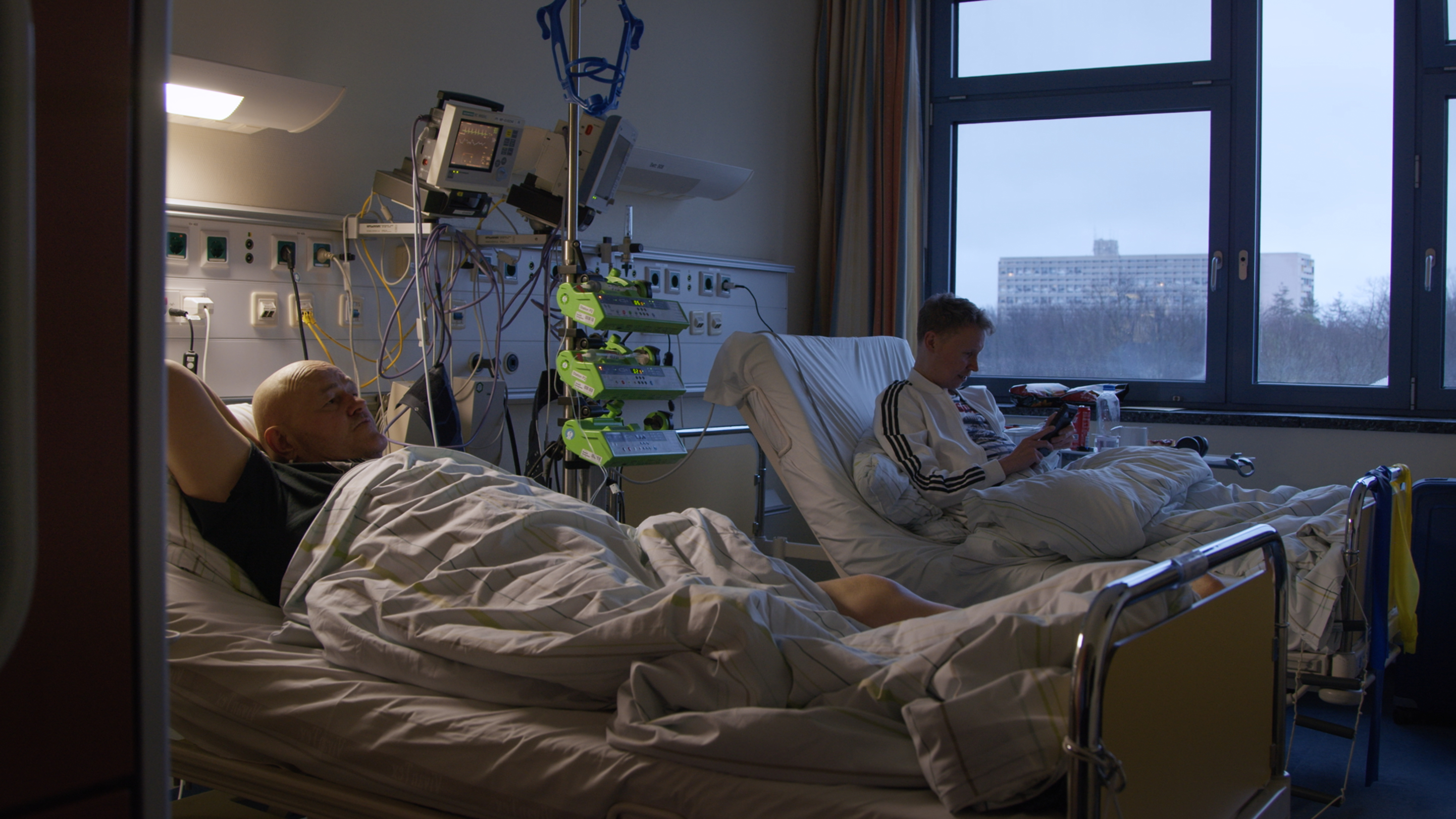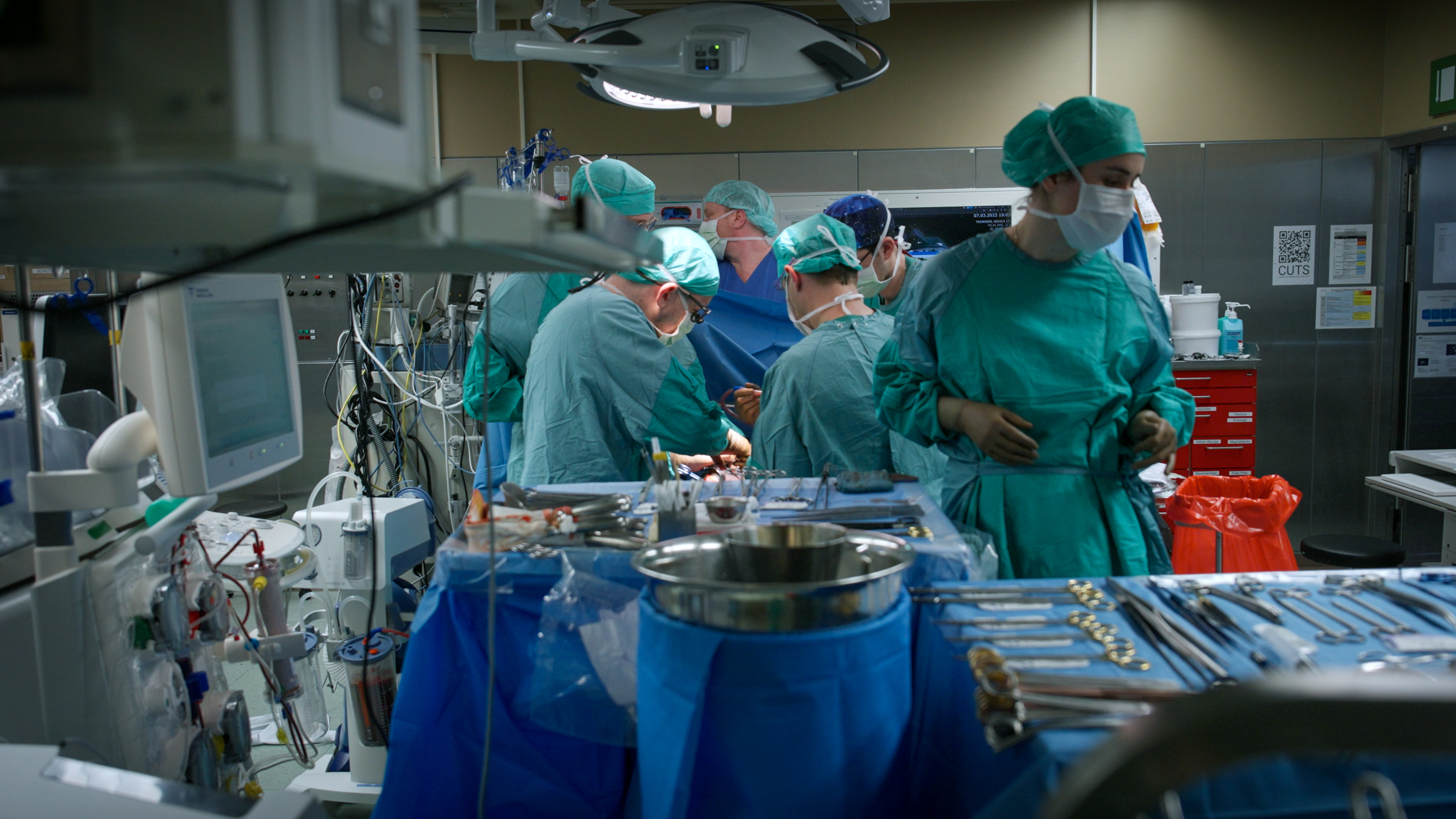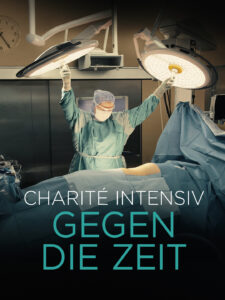INSIDE CHARITÉ: RACE AGAINST TIME
When a person’s organs fail, a race against time begins. Despite high-tech intensive care medicine and deep personal commitment, the doctors and nurses at Berlin’s Charité and Pauline hospitals often reach the point where they know only a donor organ can save their patients’ lives. Thus begins the anxious wait, days of not knowing if a patient will survive, because politicians and society have not yet found an answer to the acute shortage of donor organs in Germany.
Every day, three people in Germany die because they did not receive a donor organ in time. At the Paulinen-Hospital in Berlin-Westend, patients wait for months – listed as highly urgent for a donor heart. They can no longer leave the hospital because their condition is too critical, and they would lose their place on the waiting list. For the patients, days turn into weeks, weeks into months. They are stuck in a never-ending feeling of helplessness. Everything revolves around the question: will they hold out long enough?
Many survivors are deeply affected by this experience. As a result, some of them are now fighting for a better supply of donor organs in Germany. The series follows a kidney transplant survivor who is trying to draw the attention of legislators to the serious situation. Despite state-of-the-art transplantation medicine, patients with organ failure are treated worse in Germany than in other European countries. For many years, Germany has been at the bottom in terms of willingness to donate. Through the Eurotransplant network, which provides donor organs to patients in eight European countries, Germany benefits from the willingness of its neighbors to donate. Nevertheless, politicians up to this point have avoided making fundamental changes to existing legislation.
Without commentary or sensationalism, Inside Charité: Race Against Time documents the consequences of the organ shortage. The four-part series by Carl Gierstorfer and Mareike Müller provides a close-up depiction of the daily struggles of medical staff, the patients and those who fight for the visibility of the shortage. The series deals with one of the most pressing health policy issues of our time. In Germany, modern medicine cannot reach its full potential without the solidarity of society – and of each individual – or else there will continue to be fatal consequences.
EPISODE 1: Fear
Due to acute liver failure, 30-year-old patient Nicole urgently needs a donor organ. Intensive care doctors do everything they can to keep the young woman alive as her condition deteriorates dramatically. When an organ does become available, the surgeons must assess whether Nicole can survive the operation
EPISODE 2: Give
While the surgeons fight for Nicole’s life, Susanne wants to donate a kidney to her son Carsten so he doesn’t need dialysis. In the Pauline hospital in Berlin’s Westend district, Lars, who has a heart condition, waits for a donor organ. Mario Rosa-Bian, himself a kidney transplant recipient, is working on a campaign to raise awareness of the organ shortage in Germany.
EPISODE 3: Wait
Nicole wakes up after her liver transplant, while Lars’ condition continues to deteriorate. Susanne donates a kidney to Carsten and Mario Rosa-Bian is disappointed with the response to his campaign. Lars’ roommates Olaf and Jan, two patients on the organ waiting list at the Pauline hospital, receive terrible news. The Charité hospital prepares for an organ donation.
EPISODE 4: Life
While an organ donation is underway at Charité, Olaf and Jan continue to wait for donor hearts at Pauline hospital. It has now been four months; time is running out for both of them. Mario-Rosa Bian is working on a new plan, while Nicole, Susanne and Carsten take their first steps towards a new life. Jan and Olaf receive a long-awaited phone call – and mourn the loss of a friend.
An unsparing look at the subject of organ donation: the sequel to the award-winning RBB hospital series is a masterpiece. – Süddeutsche Zeitung
In equally calm, informative images, the film shows the dignified circumstances and complex regulations under which the death of an organ donor is determined before their organs can be removed and passed on – so that someone else can live on.
Worth seeing. – WAZ
Successful. Without voice-over commentary, just by observing this place where life and death are decided. – Münchner Merkur
A gripping documentary that makes you think. – TV Direkt
The great strength of the documentary is that it does not judge or categorize from off-screen, but lets the images and the people speak for themselves (…) The documentary by Carl Gierstorfer and Mareike Müller is reverent and at the same time very direct. In doing so, they refrain from additionally pressing the tear ducts, instead allowing the images alone to have an effect. This allows the patients to retain their dignity and works excellently because the scene and people that appear in the film are very reflective and authentic. It’s also good that sometimes neutral images such as empty corridors and the outside facade of the Berlin Charité are included. This creates a moment for the viewer to process. Rating: definitely worth seeing. – FOCUS
The TV series shows us first hand why we need to rethink: the misery of waiting patients. – BILD Zeitung
The documentary RBB series “Charité intensiv: Race against Time” deals sensitively with the subject of organ donation – and poignantly shows how important it would be to increase the willingness to donate (…) The series (…) achieves its emotional depth without spectacle or speculation. When real death intervenes in real life, there is no need for intensifying effects, the drama is palpable. Gierstorfer/Müller and their team are aware of this and take it as a guideline (…) Anyone who looks and listens carefully will also be able to learn about the many issues surrounding organ donation. The statements by intensive care doctors, transplant surgeons and medical staff make the complexity of the challenge approachable and understandable. – TAGESSPIEGEL
The series offers a variety of perspectives and great proximity to the protagonists. For example, it takes viewers into operating rooms, into consultations and makes the people who are waiting for a donor heart visible. “Charité intensiv” by Carl Gierstorfer and Mareike Müller does without commentary and emphasises the importance of organ donation. – dpa
There are plenty of hospital documentaries on television. Blood, stress and tears promise drama, emotion and therefore ratings. The four-part series “Charité Intensive: Race Against Time” (…) shows how this can be achieved without voyeurism (…) The filmmakers Gierstorfer and Müller portray the dramatic events in the hospital calmly and without sensationalism, thereby drawing attention to an important topic. A documentary as exciting as a crime thriller. – Oberösterreichsche Nachrichten
A series by
Carl Gierstorfer & Mareike Müller
Storytelling & Editor
Ronald Rist
Camera
Carl Gierstorfer, Knut Schmitz
Additional Camera
Vanessa Schlesier,
Sven Klöpper
,
Sebastian Weis
Grading
Knut Schmitz
Music
Tim Stanzel
Mix & Layback
Stanislaw Milkowski,
Jochen Voerste
Production Manager
Stefanie Kaiser
Line Producer
Ko Miklik
Line Producer rbb
Paul Thimm
Producer
Nele Huff
Social Media rbb
Fanny Steyer
Commissioning Editor
Ute Beutler,
Barbara Lohoff
Series Producer
Antje Boehmert
A Production by DOCDAYS Productions for rbb
Length: 4 x 30 Min
Release Date: 2023
When a person’s organs fail, a race against time begins. Despite high-tech intensive care medicine and deep personal commitment, the doctors and nurses at Berlin’s Charité and Pauline hospitals often reach the point where they know only a donor organ can save their patients’ lives. Thus begins the anxious wait, days of not knowing if a patient will survive, because politicians and society have not yet found an answer to the acute shortage of donor organs in Germany.
Every day, three people in Germany die because they did not receive a donor organ in time. At the Pauline hospital in Berlin-Westend, patients wait for months – listed as highly urgent –for a donor heart. They can no longer leave the hospital because their condition is too critical, and they would lose their place on the waiting list. For the patients, days turn into weeks, weeks into months. They are stuck in a never-ending feeling of helplessness. Everything revolves around the question: will they hold out long enough?
Many survivors are deeply affected by this experience. As a result, some of them are now fighting for a better supply of donor organs in Germany. The series follows a kidney transplant survivor who is trying to draw the attention of legislators to the serious situation. Despite state-of-the-art transplantation medicine, patients with organ failure are treated worse in Germany than in other European countries. For many years, Germany has been at the bottom in terms of willingness to donate. Through the Eurotransplant network, which provides donor organs to patients in eight European countries, Germany benefits from the willingness of its neighbors to donate. Nevertheless, politicians up to this point have avoided making fundamental changes to existing legislation.
Without commentary or sensationalism, Inside Charité: Race Against Time documents the consequences of the organ shortage. The four-part series by Carl Gierstorfer and Mareike Müller provides a close-up depiction of the daily struggles of medical staff, the patients and those who fight for the visibility of the shortage. The series deals with one of the most pressing health policy issues of our time. In Germany, modern medicine cannot reach its full potential without the solidarity of society – and of each individual – or else there will continue to be fatal consequences.
A series by
Carl Gierstorfer & Mareike Müller
Storytelling & Editor
Ronald Rist
Camera
Carl Gierstorfer,
Knut Schmitz
Additional Camera
Vanessa Schlesier,
Sven Klöpper
,
Sebastian Weis
Grading
Knut Schmitz
Music
Tim Stanzel
Mix & Layback
Stani Milkowski
Production Manager
Stefanie Kaiser
Line Producer
Ko Miklik
Line Producer rbb
Paul Thimm
Producer
Nele Huff
Social Media rbb
Fanny Steyer
Commissioning Editor
Ute Beutler,
Barbara Lohoff
Series Producer
Antje Boehmert
A Production by DOCDAYS Productions for rbb
Length: 4 x 30 Min
Release Date: 2023
